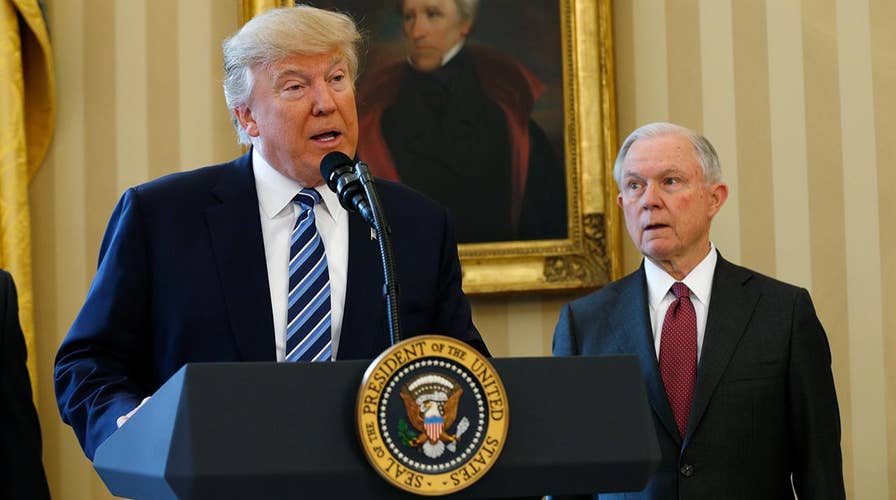Trump vs Sessions: Trump loyalist in WH doghouse
Jeff Sessions became one of Donald Trump’s biggest cheerleaders during the campaign, but his relationship with Trump appears to have soured. From endorsements to serving at the pleasure of the president, a look back at their relationship
Even for this dramatic administration, the past seven days have been extraordinary. Start a week ago Wednesday, when President Trump said Attorney General Jeff Sessions “should have never recused himself” from the investigation of Russian electoral meddling, calling the recusal “very unfair.” These comments were followed by the unlikely rumor that the Trump legal team would go after Special Counsel Robert Mueller’s staff, along with more-plausible suggestions that the president might fire Mr. Mueller.
On Friday, Mr. Trump appointed New York financier Anthony Scaramucci as White House communications director, prompting press secretary Sean Spicer to resign. This all sparked speculation about the standing of chief of staff Reince Priebus and chief strategist Steve Bannon, both of whom allegedly opposed hiring Mr. Scaramucci.
Then on Monday, a Senate panel interviewed White House senior adviser Jared Kushner about a July 2016 meeting with a Russian lawyer. That meeting was organized by Donald Trump Jr., who had received an email saying Russian officials possessed “documents and information that would incriminate Hillary.” Young Mr. Trump was told this “very high level and sensitive information” was “part of Russia and its government’s support” for his father.
The following day, the president renewed his attacks on his attorney general, tweeting that Mr. Sessions had taken “a VERY weak position on Hillary Clinton crimes (where are E-mails & DNC server) & Intel leakers!” Later, during a Rose Garden presser, Mr. Trump lamented that he was “very disappointed in Jeff Sessions.”
To continue reading Karl Rove's column in the Wall Street Journal, click here.





















